“Children both know more and learn more than we ever would have thought,” notes psychologist and infant brain researcher Alison Gopnik in her Ted Talk entitled “What Do Babies Think?” She goes on to point out that hundreds and hundreds of studies (along with her own) over the past 20 years support her statement.
Pediatrician Emmi Pikler and her protégé Magda Gerber saw proof of infant awareness more than 70 years ago through their extensive observational studies of infant and toddler free play. Furthermore, they observed awareness and competence in the infants’s responses to communication that clearly demonstrated an ability to participate actively in caregiving tasks.
The recognition of infants as aware individuals is the basis for every aspect of Magda Gerber’s Educaring Approach, down to minute details like our word choices and clothing that is geared toward comfort and free movement rather than cuteness. Respect for infant consciousness is a constant in all of Gerber’s advice.
When practicing Gerber’s approach, we discover early on that caring effectively for an aware child requires a high level of self-awareness. We recognize our power. Not only do our intentional behaviors influence our children, but our thoughts and feelings can, too. Children sense them through our tone of voice and body language. They know when we are uncomfortable with a situation, and that makes it virtually impossible for them to get comfortable (when we need to separate, for instance. How can our toddler be cool with us leaving when she senses our hesitation?) If our discomfort is chronic, we can create a more general dis-ease, which usually shows up in emotional fragility or constant limit-pushing behavior.
It makes sense. In order to deal with the job of growing up and all its challenges, kids need parents who handle their job with relative ease. Or, at least, most of the time.
More specifically, children know when:
We fear their feelings.
They sense it in our urgency to hug, soothe, pacify, distract, make it all better. Even when we are verbally acknowledging their feelings, they sense it if the subtext is overly sympathetic or the slightest bit impatient (Okay, okay, I’ve acknowledged you, so that’s enough now, please, please stop). They sense it when we are angry, tense, or impatient with their explosions. And they sense it when we’re walking on eggshells or trying to make it work for them in order to avoid their negative reaction.
Our message is clear: Don’t go there. Anger, frustration, disappointment, and sadness aren’t safe places to be. Our discomfort then becomes our child’s, hindering the development of emotional resilience and self-confidence.
We waver with limits.
Again, there is a very, very slim chance that a child will accept a limit when we seem wobbly with our decision. Pleading, coaxing, over explaining, and reasoning in the hope of convincing our child she should agree to stop hitting the dog or needing the new toy at Target are dead giveaways of our discomfort.
Or perhaps there’s annoyance or anger behind our solemn mask of calm control, because we’ve asked nicely, and our child’s resistance seems so darn unreasonable. Personal, even. We’ve told her how much it bothers us when she jumps on our freshly made bed and then given her several chances to stop (Can’t you see how patient I’m being, will you give me a break, please?). Toddlers can only wonder how their impulsive 3-year-old antics could be so unnerving to their giant leaders. What’s the big deal? Just see what I’m doing and stop me right away, gently move me, and then let me rage about it. I might really need to scream.
There’s a category of typical behaviors that tend to bother parents and yet are physically impossible to limit. They include: repetitive questions like, “Why?” or “Can I have ice cream?”; actions like following us around while we do chores rather than playing independently as we’d wish them to; and expressions of emotion like screaming, whining, exclaiming, “You’re stupid,” “I hate you,” etc. These behaviors usually begin innocently enough but tend to gather steam and occur far more frequently when parents are bothered by them. It’s as if our children have a need to understand why these relatively harmless acts could have such power.
In their quest to find in us that capable, comfortable parent they desperately need, kids might continue to test us in small and large ways, waving red flags through their challenging and resistant behavior. When this need remains unsatisfied, it can perpetuate a cycle of mutual frustration, creating distance and disconnection between parent and child.
They are being subtly manipulated or coerced.
Our children’s sensitive radar for coercion is commonly what stalls the toilet learning process and causes eating issues. Toddlers, especially, have a developmental need to resist our agendas, and it can be so powerful that it creates a physical response like constipation or a lack of appetite.
We’re concerned that they are not social, athletic, advanced, gracious, assertive, gentle, creative, artistic, independent, (fill in the blank __) enough.
For parents, there’s always a reason to worry. Take play, for example. Parents commonly share with me these kinds of concerns about their children:
He doesn’t seem interested in toys.
She only plays with one type of toy.
She moves from toy to toy, never seeming to focus on anything for very long.
He takes toys from other children.
He gives toys up to others too easily.
She’s too bossy with her friends.
She stays on my lap at play group rather than exploring with the other kids.
And so on…
Our private concerns, dismay, and dissatisfaction — which children sense — make it more difficult for them to pass confidently through these various phases of their individual learning processes.
In other words, FDR’s famous statement could apply to parenting: “The only thing we have to fear is fear itself.” Truly, our fears will usually trip us up and might very well cause the behaviors and feelings that we dread.
But how can we change what we feel? That’s a problem. We can’t. We might believe we are doing a stellar job pretending to be unaffected, but more often than not, children still know it’s an act.
The only answer I know of is altering our perspective, and this has been the focus of my consultations with parents. I attempt to help them to see differently so they can let go of their fear and guilt and gain more trust in their children. This might simply mean assuring parents that their child’s behavior is typical and temporary rather than a permanent condition; or perhaps it’s conditional and to be expected because of a change in routine (new sibling, schedule change, etc). It often means pointing out to parents that feelings are all good all of the time (even when the timing is inconvenient). Emotions might seem to come out of nowhere, but actually they only come because they are in there and need to be released. And I consider our acceptance of these feelings a powerfully positive (often heroic) act.
Mostly, I try to help parents recognize our powerful influence and see where they may be unintentionally fueling, intensifying, perpetuating, or even causing undesirable behavior, and also where they may be stifling healthy learning processes by allowing their emotions and judgments to use up all the oxygen in the room. Kids need room to breathe.
As my acting teacher often reminded his students, “If you’re thinking it, the audience knows it.” There are no more perceptive audience members than our children. To help them flourish in their roles, we must play ours with awareness and trust.
I share more about this mindful approach in
Elevating Child Care: A Guide to Respectful Parenting

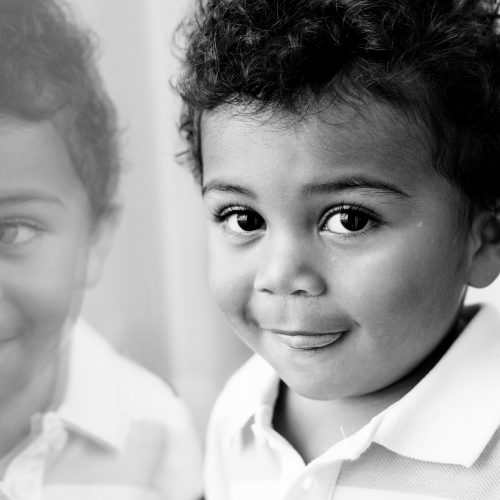
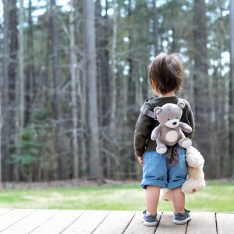

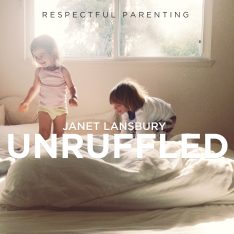

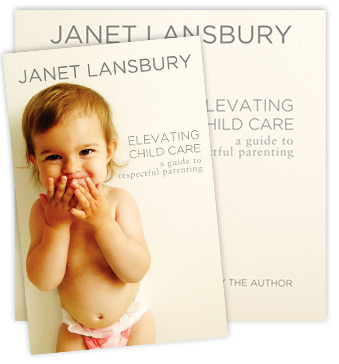

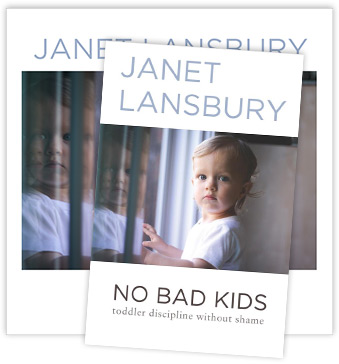


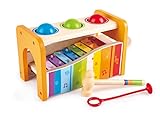



WOW, I am so thankful for this timely post! My son who is almost 4 recently wants nothing else than pretending to be a girl: he talks like a girl, plays with girls, etc. He never was a physical boy to start with, he does not pretend-play as superhero or with toy swords or chase his friends. He much rather play alone than being in a rowdy crowds of boys (or girls, for that matter), but with him pretending to be a girl makes me wonder.
Here’s the flip side: had he been a she, I would not bat an eye. In fact, active, assertive girls are even more accepted in society. Girls playing with boys toys, more power to them, but sadly not the other way around.
Another reason why I fall into this fear trap is because I’ve got noone to compare him with, no siblings or other children. Is this behavior permanent or temporary? I think this is when a parent consultant, like you, would be a valuable source.
In my case — from my limited experience so far, I conclude that it is my fear speaking and preventing me from seeing my child for who he is. The last thing my son needs is a mom who thinks “he is not… enough.” Thank you for this reminder!
You’re so welcome, Claire. Your self-awareness around these issues will serve you and your son well. It might help to focus on a basic truth… We cannot change who our children are, but we do have enormous power to affect how they feel about who they are.
“We cannot change who our children are, but we do have enormous power to affect how they feel about who they are.”
What a phrase! I’ll write it down where I can see it often 🙂
🙂
Can I just say. You sound like such an awesome parent and your child sounds so awesome. I know that a lot of parents would freak out but you’re here, so you know to just let him play and explore his idenity. I think it’s kind of crazy that more children aren’t encouraged to, but people are scared. So much of gender is performative anyway but my own parents say things like “don’t scream like a girl” or “ooh pink’s a girls colour” to my kid and don’t understand why that’s wrong. If my kid grew up to be femme, I would be behind him 100% and make sure he has the strongest ever support system. Too many kids are bullied about this and it can have devastating results.
Thank you for this. I’m seeing a world of change in my toddler as my anxiety about his lack of ‘independent play’, ‘social interactions’ etc reduced. As I got more confidence in him, he’s gaining confidence- slowly but steadily his beautiful soul is unraveling to others too. Thank you for such beautiful articles. You changed our lives..
I am thrilled for both of you, Nimitha! Thank you for your kind and encouraging words.
Hi Janet, great article as usual. I have a gut resistance to the statement “Toddlers, especially, have a developmental need to resist our agendas”.
I know it’s in the books, but as a person who works primarily with todds (for 12 years now), I think something else is going on.
In my experience it isn’t “all” toddlers who do this and I have a feeling it is a social construct rather than a developmental tendency.
I’m interested to know if you have come across anything that mentions other possibilities to this theory?
Hi Khadija! Good to hear from you. Your point is interesting. Are you a parent as well as a teacher? I would not expect toddlers to resist the agendas of their teachers or caregivers, but I would be quite concerned about a toddler who never said “no” to parents or only rarely went against their wishes. Magda Gerber used to note that only an abused child would be so perfectly behaved… out of fear. When children do bring a lot of resistance to the classroom (or to other adults besides their parents), it is generally because they are not getting the responses they need at home. So, that would ideally be more rare.
Parent and teacher, but my kids are older and I really don’t remember! There are always some kids who definitely are testing and pushing boundaries, and you are right about acting differently for me as a caregiver. Interesting points. Thanks!
This is an eye opening post. Even though I know that I should be accepting of my child’s lack of socializing in play groups/classes (thanks to your blog), I have found it quite difficult to just relax and let feelings be. But I have noticed that the more I don’t think about it and instead socialize myself with other moms, my toddler becomes more playful. Even as I’m writing this and sorting through my thoughts, I’m having an aha moment. Thanks Janet!
Yay! You’re so welcome, Mara
Janet, thank you for saying some of the hard truths about self awareness and responsibility. Parenting is loaded with potential personal transformation if we can accept ourselves and allow ourselves to grow and learn and be even better. We benefit enormously from your writings, thanks for sharing 🙂
Thanks, Micha!
Children are great observers. They can very well sense what is going on inside our mind.
I have many a times noticed that when i am meeting someone new and if I am not so comfortable with them, my toddler also behaves the same way. But when i am with my friends I can see my toddler easily mingling with them. Now I understand the reason ,after reading this article.
Yes, exactly! You are very insightful
I am just one of many readers from around the world following your website. I have learned so much and eagerly take in what you have to say. I have to point out though, that using examples (that toy from Target) that are only relevant to North Americans takes away from a great overall message that otherwise crosses boundaries. And many people don’t even know what Target is, so it takes away from their understanding.
Thanks for your work to make RIE accessible!
Thank you for the feedback, Margaret! I really appreciate your pespective and will keep your suggestion in mind.
Hi Janet, first time commenter but frequent reader here! What a timely article…I’m finding myself going through cycles of anxiety and stress about my 3 year old’s challenging behaviors, which incidentally are much more apparent in his daycare classroom, where I’m obviously of no help in the moment. He’s quite strong-willed, impulsive, curious, bright, and charming – a combination that’s definitely keeping us on our toes! I’m always trying to make sure I’m not outwardly displaying my own emotional challenges, and I agree, it’s so amazing how our children can pick up on the smallest inklings of emotion. Thanks for your perspective, and I’ll continue to turn to your posts for insight.
I’m interested to know how the care center is handling your son’s behavior… You are describing characteristics of a bright child… and these children need an empathic environment
Hi Janet
I’ve read and loved your book no bad kids, its the first parenting book that actually clicked for me. Thank you! This article coincides with a question I have; my 3 year old has been checking in with me whenever I am displaying any emotion other than “happy” I am OK with it but I’m concerned that he is feeling responsible for my feelings. What advice do you have for a good response? I’ve been saying “don’t worry about how mommy is feeling, mommy makes mommy happy.” But its not working.
Thank you!
Hi Jessica
I’m not Janet, but thought I’d weigh in. What a perceptive and empathetic boy you have : )
Have you tried being honest with him about how you’re feeling? Although it’s a kind intention to try to reassure him, he most likely senses when you’re not telling the truth or being evasive and that’s why it isn’t working.
Perhaps try explaining how you feel and relating it back to one of his experiences? Something like “You noticed that I’m sad at the moment. I just heard that one of my friends is sick. Do you remember feeling sad when we had to say bye to granny at the weekend and you didn’t want her to go?”, or “I’m frustrated because the car won’t start. You were frustrated yesterday when your brother wouldn’t give you back your toy.” That way he understands that your mood isn’t due to something he’s done, and he might even surprise you with some compassionate responses.
Hopefully by being honest, we show our kids that it’s ok to have different emotions (i.e. not to feel ashamed or afraid of their feelings, or of expressing them to us). After all, no one can be happy all the time! We’re also using the vocabulary in context, which in time gives them the tools to tell us how they’re feeling. And not least, we’re connecting with them authentically… which hopefully sets the foundation for a lifetime of good communication between us!
Good luck with your son – you sound like a very caring mum.
thank you Alex!
that is some really helpful advice. I think that relating it what its about is a really good plan. *you actually have the same advice our local parenting teacher had when I asked her!* so thank you for reaffirming this!
yes he is caring and attuned and I don’t want him to be ashamed of his feelings or think he is the reason I’m upset!
Jessica
Hi Jessica! Sorry it took me awhile to respond. Ah, I so relate to the urge to say, “don’t worry!” But what I’ve learned is that a response like that can actually cause children to worry more… because they sense our discomfort with their worrying 🙂
So, if you would like to help your child stop worrying, I would try to remember to only acknowledge. Acknowledge, acknowledge, acknowledge and let feelings be. So, for example, if he asks, “Are you happy?” I would respond honestly, “You are wondering if I’m happy. Yes, I am at this moment. A moment ago you saw me looking worried. That’s because ___.” Or perhaps a simple, “Yes, I am. Thanks for asking!”
In other words, he won’t ever be ashamed for his feelings if all his feelings are accepted by you readily.
Hi Janet,
I love your blog and have been reading for 4 years! The advice presented in your articles has been invaluable to my wife and I who are raising two daughters (ages 2 and 4).
I have a question that doesn’t stem from anything in particular, just though experiment, I guess. You say, “feelings are all good all of the time”. What is your advice to parents going through a situation where it would be very troubling for them to accept that statement as being true. For example, a set of parents have a child who is having feelings that, if carried out, would be illegal. This particular set of parents have been in the news recently, and their child came to them and expressed feelings of wanting to touch his sisters inappropriately. If these parents had sought you out for counsel, would you have said “feelings are all good all of the time”? Does this statement/mantra have an expiration date (eg. no longer valid after the child reaches a certain age), or is it only valid when talking about certain feelings (eg. love, anger, fear, trust, impatience, etc.)? I’m sure there are more examples of times it would be difficult for parents to accept this statement, but I hope you get the point from my example and can perhaps expound on what you mean by, “feelings are all good all of the time”.
Thanks!
Hi Joel! The key for me is understanding that feelings are involuntary… actions are not. If we tell a child that it’s not okay to feel what he feels, that doesn’t change what he feels. What that does communicate to the child is that he is wrong or bad and that it is not safe to share himself with that parent. Neither of those messages is going to be helpful to children, particularly when they have a serious issue that needs to be addressed. Our lack of acceptance cuts off communication, which would be especially disastrous in this situation. If my child came to me to share those kinds of feelings, I would be very scared, of course, but I would (I hope) say, “Thank you so much for sharing those feelings with me. That must be very uncomfortable for you. I’m sure you know that it is not okay to act on those feelings. Don’t worry, we are going to get you the help you need. Please always share with me when you have those thoughts or feelings.”
So, perhaps I should amend my statement… because what I mean to say is that it is always good for children to express the feelings, rather than hold them in or hide them. And that holds true for humans of all ages, in my opinion.
Thanks for pointing this out and providing me the opportunity to explain.
Thanks, Janet! Very helpful.
I wanted to add that the child is expressing a thought, not a feeling. It might be worth exploring what feelings are prompting that thought. It could be that he feels fear and his thought is to self-soothe by taking that action.
I’d just like to add that what Joel seems to be describing is more of an urge, impulse, or even thought than a feeling (i.e., an emotion).
The English language can be confusing here as we often say, “I feel like…” which is then followed by a thought or impulse. “I feel like you are a jerk” is a thought. “I feel like punching this pillow” is a verbal description of a behavioral urge or impulse. “I feel angry” is a verbal description of an emotion/”feeling.”
Hi Janet, I try and parent with self awareness every single day. It’s paying off no end as we’ve got a very confident and outgoing young lady who’s 3 years old. Sometimes I snap and shout but I soon apologise sincerely to her and she now does the same back. We adopted her at 15 months old and I think she’s always been hugely aware of herself and others. But I firmly believe that because we treat her with the respect of being her own person she has developed and will continue to develop in to a really confident and at ease adult. I really hope so. We listen to her “no’s” and respect them as well. Of course there are times when I have to talk to her as a toddler but not very often. And, actually, we’ve just started giving her one warning about any whining or other behaviors we don’t want (hitting etc) and that seems to have made her even more secure and confident because she trusts me to keep those boundaries firmly in place.
I really love your work and your ideas Janet, Reading your articles Helps To remind me, on bad days, that I’m doing the right things. Thank you
Thank you so much sharing your story! Keep up the wonderful work! x Janet
You point out exactly why learning about the Law of Attraction is so important for parents.
Here, child development experts are validating what the LOA teaches us.
Our children, even as infants (and even while still in the womb) are sensitive to our emotions, our energy, our vibration. Even before they can understand our words, they feel our feelings.
It isn’t our goal to never have “negative” feelings, such as frustration, anger, or sadness.
It is our goal to be aware of our thoughts and feelings. Whenever possible, we can use LOA tools to help raise our vibration–for our own benefit and for our child.
But even more important is to keep our words consistent with our vibration. That doesn’t mean we have to have a temper tantrum, but it does mean that we can verbally express our “negative” feelings. This helps the child to trust us and their own feelings.
What is your response to repetitive questioning? Mainly “can I have an icecream” or “can I do xx activity” eg. painting before bed. I’m at a loss.
I shared my thoughts in this podcast.. hope it helps! https://soundcloud.com/janet-lansbury/your-child-asks-again-and-again-and-again
Thanks Janet for this beautiful post. I needed this today. My son who has just turned three has been leaning towards play doh for quite sometime making shapes, animals ,trucks and relating to just abt anything he experiences. He also is using it for pretend play. I was feeling a bit anxious about this. With this post you quelled my fear/anxiousness. RIE philosophy of wait and trust the child has always brought miracle moments here. Thanks for being the guiding light and touching our lives.
Wonderful news to start my morning! Thank you, Savitha
Hi Janet! My daughter and I are in a super sticky cycle right now. I am overstretched and lacking in self care, and she is incredibly clingy and emotional. Her Dad (who doesn’t live with us but we see frequently) just left the country for a few months, and she is really feeling this. I am finding myself irritated often, reacting in ways that are out of line with my Mama desires, and verbally asking her for space as she is constantly attached to me in some way (which makes it worse of course). Reading that it is a simple shift in the way I feel internally doesn’t seem like enough right now. Is it?! Your insight would be incredible. <3
I forgot to say that she is 28 months
Hi Janet. My children are older, 12, 10, 9. I wish had this information when my children were younger, I can see very clearly why we had the number of issues we did and still do. However, my question now is, my 12 yr old has just started boarding school and is very homesick. Loves day school hates boarding. We perceive this to be because she now has to conform to their rules & routines and is told what to do all of the time where when she was with us there was more flexibility and more often than not we just gave in. How can we help her and stop the ‘I want to come home’ and tears and get her to see this will be an amazing experience for her if she just gives it a chance?
Hi Samantha – Unfortunately, we can’t “get children to see this will be an amazing experience”, or get them to see anything else the way we see it.
Instead, we must trust them to have the ups and downs of their OWN experience. I would work on being the person that will listen to your daughter’s homesickness without trying to talk her out of it or change it or judge it in any way. These are her feelings and part of her path. TRUST is an incredible challenge, I know.
I love it! Living in fear can really steal away the joy of life. There is something so amazing that happens when I just accept my little one for exactly who he is. I love the suggestions for completely free play. My days with him used to be a chore filled with a constant question of what am I going to entertain him with next? Now my days are such a pleasure together. He sits for 15 minutes just turning pages back and forth or flipping the same book over and over. I love to watch him discover things organically. It really makes me treasure our days together. Thanks again for making this information so accessible!
My pleasure, Adie. Thank you for sharing with me!
Thanks so much for this post. I struggle with this so much, and am definitely guilty of thinking I’m doing a great job of hiding my anxieties, about my son’s development. My son is incredible – smart, inquisitive, playful, tender. And at 26 months, he’s not saying much. He has about 25 words and some signs. He communicates very effectively despite his lack of actual “words”. At my mother’s insistence, we took him for a speech evaluation a few months ago, which left us with a diagnosis of a mild expressive language delay. As a speech therapist myself, it’s been really hard to navigate this situation. He is now receiving speech therapy once a week in our home, and I dread it so much every week. It really revs up my anxiety and makes me feel like an utter failure, as what I hear and see the speech therapist doing are all of the things that I try to do with him day in and day out. I feel like I am walking this impossible line between trusting his development and getting him the care that he needs if in fact there is something wrong. It’s exhausting and really takes a toll on me. Any insight you could offer me would be greatly appreciated. Thanks so much.
My grandson hits his mother,throws his plate and screams when he doesn’t get his way. He is turning 4 next month. But basically a sweet little boy
His mom says he is just frustrated. Makes me sad. He’s an only child. please help! He’s very smart. Has a little speech problem but going to speech therapy for a year. HELP!!